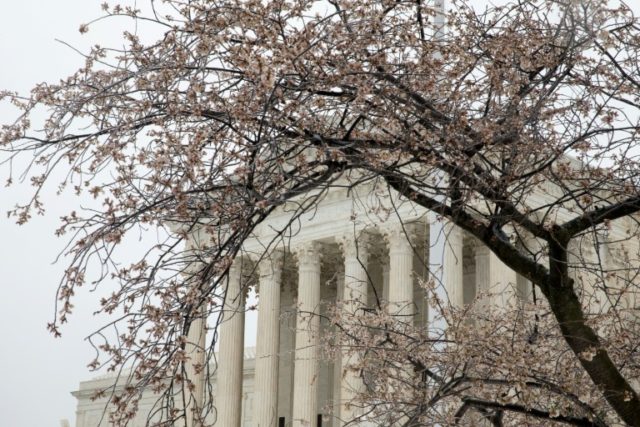Washington (AFP) – The US Supreme Court on Tuesday agreed to take a case on allegedly racially based electoral districts in Virginia, with all eyes on President Donald Trump’s two chosen judges.
The high court will for the second time examine the electoral map in the state, which is accused of concentrating black voters in 11 House of Delegates districts to reduce their influence elsewhere.
In March 2017, the Supreme Court ordered a lower court, which had upheld the existing map, to reconsider. In a new hearing, the federal judges ruled that black people were overrepresented in the districts and they were to be redrawn.
Now, Republican legislators in Virginia have introduced an appeal before the Supreme Court, which agreed to hear their arguments within the coming months.
A particularly close eye will be on the positions of conservative judges Neil Gorsuch and Brett Kavanaugh — who had not yet been confirmed at the time of the first decision.
So-called racial gerrymandering exists across the US, and is the source of many disputes.
The Voting Rights Act of 1965 prohibited spreading minorities across voting districts, depriving them of sufficient electoral clout to elect a preferred candidate. Instead, it called for some majority-minority districts.
But there’s a political element at play: black Americans are presumed to be mostly Democratic — while Republicans are primarily white. So primarily minority districts also represent an opportunity to reduce Democratic influence elsewhere.
The practice of “gerrymandering” is named after 19th century Republican Elbridge Gerry, who redrew state senate election district boundaries in Massachusetts. The new limits were said to resemble a salamander, resulting in the second part of the term.
The Supreme Court recently rejected two major claims challenging partisan gerrymandering. Many had hoped the court would end once and for all the re-drawing of voting districts by incumbents to disadvantage their opponents.

COMMENTS
Please let us know if you're having issues with commenting.